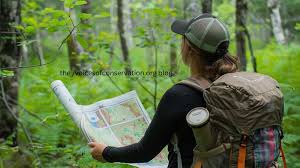Voicesofconservation.org blog, environmental advocacy has found new platforms and methods to reach wider audiences. One such platform is Voices of Conservation, a dedicated blog that delves into the intricate relationship between humans and nature. This article explores the mission and impact of the Voices of Conservation blog, its role in promoting environmental awareness, and the significance of its contributions to global conservation efforts.
The Mission of voicesofconservation.org blog
voicesofconservation.org blog is more than just a blog; it’s a movement aimed at bringing together diverse perspectives on environmental conservation. The blog seeks to create a dialogue between scientists, activists, policymakers, and the general public. By providing a space for these voices to be heard, it fosters a deeper understanding of the challenges facing our planet and the solutions needed to address them.
The primary mission of Voices of Conservation is to educate and inspire. The voicesofconservation.org blog covers a wide range of topics, including wildlife conservation, climate change, sustainable living, and the impact of human activities on the environment. Through informative articles, personal stories, and expert insights, Voices of Conservation aims to raise awareness and motivate action.
Promoting Environmental Awareness

voicesofconservation.org blog, One of the key roles of Voices of Conservation is to promote environmental awareness. In a world where environmental issues often take a back seat to economic and political concerns, this blog serves as a reminder of the urgent need to protect our natural world. The articles published on the blog are meticulously researched and written to engage readers of all backgrounds.
For instance, voicesofconservation.org blog regularly features articles on endangered species and the efforts being made to protect them. These stories not only highlight the plight of these animals but also shed light on the broader implications of biodiversity loss. By presenting these issues in a compelling and accessible manner, the blog helps to make the concept of conservation more relatable and urgent for its readers.
Moreover, the voicesofconservation.org blog emphasizes the interconnectedness of all living things. Articles on ecosystems, for example, illustrate how the health of one species can affect entire habitats. This holistic approach encourages readers to see the bigger picture and understand how their actions, no matter how small, can have a ripple effect on the environment.
Inspiring Action Through Storytelling

Storytelling is a powerful tool for change, and voicesofconservation.org blog leverages this to great effect. The blog features stories from individuals and organizations working on the front lines of conservation. These narratives provide a human element to the often abstract and complex world of environmental science.
Personal stories of activists and conservationists bring a sense of immediacy and urgency to the issues discussed. Readers are introduced to passionate individuals who have dedicated their lives to protecting the planet, often at great personal sacrifice. These stories serve as both inspiration and a call to action, encouraging readers to get involved in their own communities.
In addition to individual stories, the voicesofconservation.org blog also highlights successful conservation projects from around the world. By showcasing these success stories, Voices of Conservation provides concrete examples of what can be achieved through dedication and collaboration. These examples serve as blueprints for other communities and organizations looking to implement similar initiatives.
Expert Insights and Analysis

voicesofconservation.org blog is committed to providing accurate and up-to-date information. The blog features articles written by experts in various fields, including biology, ecology, and environmental policy. These expert insights help to demystify complex topics and provide readers with a deeper understanding of the issues at hand.
For instance, the voicesofconservation.org blog often features analyses of the latest research on climate change. These articles break down scientific studies into easily digestible pieces, making the information accessible to a broader audience. By doing so, Voices of Conservation helps to bridge the gap between the scientific community and the public, fostering a greater appreciation for the importance of scientific research in addressing environmental challenges.
Moreover, the voicesofconservation.org blog provides a platform for experts to discuss innovative solutions to environmental problems. From new technologies in renewable energy to cutting-edge conservation techniques, these articles showcase the ingenuity and creativity being applied to save our planet. By highlighting these advancements, Voices of Conservation inspires hope and optimism for the future.
Community Engagement and Collaboration
A unique aspect of Voices of Conservation is its emphasis on community engagement and collaboration. The blog encourages readers to not only consume content but also to contribute their own voices. This participatory approach helps to create a sense of ownership and responsibility among readers.
The blog features a section for guest posts, allowing individuals from all walks of life to share their experiences and insights. This inclusive approach ensures that a diverse range of perspectives is represented, enriching the overall discourse on conservation. It also provides a platform for underrepresented voices, ensuring that the conversation on environmental issues is inclusive and equitable.
In addition to individual contributions, Voices of Conservation actively seeks partnerships with other organizations. By collaborating with NGOs, academic institutions, and governmental agencies, the blog amplifies its reach and impact. These partnerships allow for the sharing of resources and expertise, strengthening the overall conservation movement.
FAQs about Voices of Conservation
Q1: What is the primary goal of the Voices of Conservation blog? A1: The primary goal of the Voices of Conservation blog is to educate and inspire readers about environmental conservation by providing a platform for diverse perspectives, expert insights, and compelling storytelling.
Q2: Who can contribute to the Voices of Conservation blog? A2: The blog welcomes contributions from individuals of all backgrounds, including scientists, activists, policymakers, and members of the general public who have experiences or insights related to conservation.
Q3: How does Voices of Conservation ensure the accuracy of its content? A3: The blog features articles written by experts in various fields and meticulously researches all published content to ensure accuracy and up-to-date information.
Q4: What topics does the Voices of Conservation blog cover? A4: The blog covers a wide range of topics, including wildlife conservation, climate change, sustainable living, the impact of human activities on the environment, and success stories from conservation projects around the world.
Q5: How can I get involved with Voices of Conservation? A5: Readers can get involved by contributing guest posts, participating in community discussions, supporting featured conservation projects, and sharing blog content to raise awareness.
Conclusion
Voices of Conservation stands as a beacon of hope and a catalyst for change in the realm of environmental advocacy. By providing a platform for diverse voices, promoting environmental awareness, and inspiring action through storytelling and expert insights, the blog plays a crucial role in the global conservation movement. Its commitment to accuracy, community engagement, and collaboration ensures that it remains a trusted and influential resource for anyone interested in making a positive impact on the planet.










